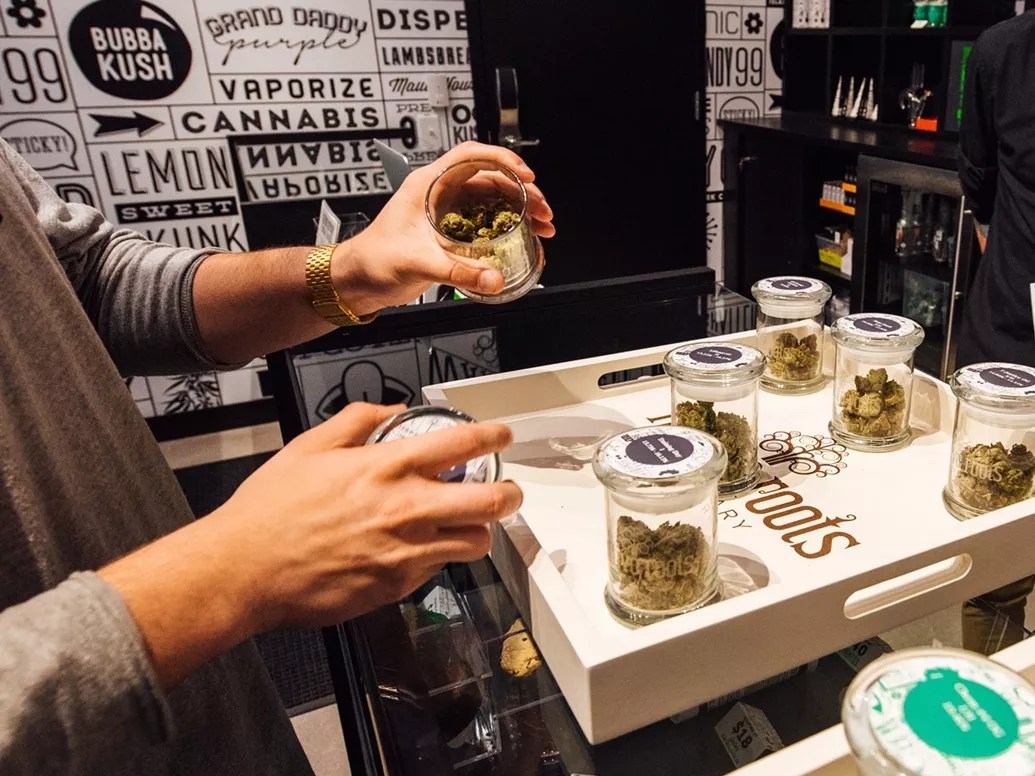
Westword

Audio By Carbonatix
The City of Denver’s marijuana tax revenue collection crossed the half-billion mark this summer, according to data from the Denver Department of Excise & Licenses, reaching $501.5 million in August.
Excise & Licenses began tracking marijuana tax revenue in 2010, when the city began licensing medical dispensaries. However, those collections only relied on business licensing fees and a 3.62 percent sales tax at the time, and brought in around $26.2 million from 2010 through 2013.
In 2014, when recreational pot shops opened across Colorado, Denver’s local tax revenue skyrocketed thanks to dramatically increasing dispensary sales and heftier taxation. That year alone, Denver collected $23.8 million in marijuana tax revenue and licensing fees, with the city implementing a 3.5 percent sales tax on recreational sales. That number increased every year through 2021, when Denver’s annual marijuana tax collection hit a record $72.9 million.
Dispensary sales mirrored the same growth during that span, with Denver increasing its local special sales tax on recreational marijuana purchases from 3.5 to 5.5 percent in 2018 to help fund local affordable housing programs.
A recreational dispensary purchase in Denver currently carries a 26.41 percent sales tax rate, including the state’s 15.5 percent marijuana sales tax, Denver’s standard municipal sales tax and the city’s special taxes on retail marijuana, which fund projects for affordable housing, law enforcement, youth prevention and RTD.
According to a report released by Excise & Licenses earlier this year, the 2 percent increase in marijuana sales taxes for affordable housing provided nearly $38.8 million from late 2018 through 2022, which has helped pay for Denver Department of Housing Stability’s land acquisitions, unit development and production, housing assistance and supportive housing services.

Denver’s local marijuana tax revenue allocation in 2023
City of Denver
In 2022, then-Mayor Michael Hancock directed 1 percent of Denver’s annual marijuana sales tax revenue per year to support an investment fund intended to provide capital to business owners from diverse backgrounds.
In 2023 alone, local marijuana tax revenue will fund $8 million in homelessness services, per Excise & Licenses, as well as over $8.7 million in affordable-housing assistance and nearly $4.4 million in small-business investments, with over $10 million allocated for youth intervention, legal marijuana enforcement, regulatory efforts and public safety campaigns.
Colorado’s marijuana industry has dipped over the past two years, however, and so has Denver’s local tax revenue, going from nearly $73 million in 2021 to $54.8 million in 2022. In that same span, statewide tax revenue dropped over 23 percent. Based on monthly dispensary sales and tax revenue data in 2023, this year is expected to show a similar rate of decline.
Denver is still home to around 200 individual dispensaries and over 300 registered growing operations, Excise & Licenses data shows, but the city’s grip on the Colorado market is also loosening. According to the state Department of Revenue (DOR), Denver dispensaries were responsible for 28 percent of statewide marijuana sales in 2022, down from 31 percent last year.
The same month Denver marijauna tax revenue hit a half-billion, the DOR reported that dispensaries across the state also hit a major milestone, with Colorado pot shops topping $15 billion in recorded sales since 2014.